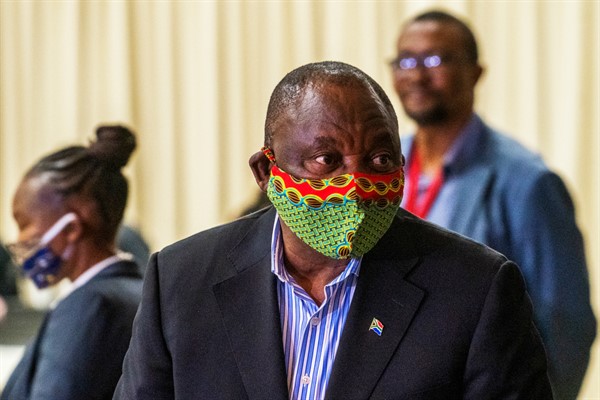When Cyril Ramaphosa became president of South Africa in February 2018, many South Africans saw it as a “new dawn” for their country. In the aftermath of Jacob Zuma’s corruption-plagued presidency, Ramaphosa seemed to offer the hope of competent leadership and accountable government. Commentators spoke of “Ramaphoria,” as the new president sought to revive the spirit of idealism that informed the early days of post-apartheid South Africa in the 1990s, and to engineer a definitive break with what he acknowledged were “nine wasted years” under Zuma.
Ramaphosa promised more than just a change in the political atmospherics, however. His administration committed itself to tackling a series of interconnected socioeconomic issues that Zuma had neglected. Many South Africans were suffering from soaring levels of poverty and inequality, as well as a grave unemployment crisis. To help address these problems and boost the country’s anemic economic growth, Ramaphosa pledged to attract $100 billion of foreign direct investment over five years. At the same time, he hoped to rebuild the integrity and capacity of a state apparatus that had become unfit for public service due to the cronyism of the Zuma era.
This all amounted to a formidable agenda even under the best of circumstances, and had Ramaphosa’s performance been merely uneven, it would have been neither surprising nor damning. But the reality is that after two-and-a-half years in power, there are very few positive indicators the government can point to. Even before the COVID-19 pandemic sent South Africa spiraling into an even deeper economic crisis, there was a growing sense that Ramaphosa was treading water, and that he had squandered the political capital he accumulated in 2018. He has not delivered on a promised package of economic reforms, nor has he been able to “turn the tide of corruption” in the ruling African National Congress party, as he pledged to do in his inaugural address.

